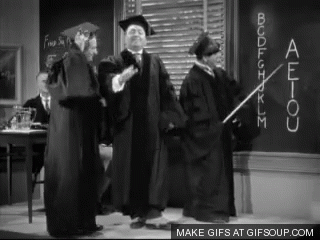In my whole life, I have known no wise people (over a broad subject matter area) who didn’t read all the time – none, zero.”
One of the best ways to learn is from the experiences of others. And one of the best ways to do that is to make friends with the eminent dead. Through trial and error, over the years, I’ve come across several frameworks that help us improve how we read.
How to Read Better
What to Read
Book Recommendations by Year
Taking Notes While Reading

- At the end of each chapter write a few bullet points that summarize what you’ve read and make it personal if you can — that is, apply it to something in your life. Also, note any unanswered questions. When you’re done the book, put it down for a week.
- Pick up the book again and go through all your notes. Most of these will be garbage but there will be lots you want to remember. Write the good stuff on the inside cover of the book along with a page number.
- Copy out the excerpts by hand or take a picture of them to pop into Evernote. Tag accordingly.
Remembering What you Read

- Before you start reading a new book, take out a blank sheet of paper. Write down what you know about the subject you’re about to read — a mind map if you will.
- After you are done a reading session spend a few minutes adding to the map (I use a different color ink).
- Before you start your next reading session, review the mindmap (I use mine as a bookmark sometimes.)
- Put these mind maps into a binder that you periodically review.
Reading More
Important Articles on Reading

- Speed Reading is BS. The best way to read faster is to read more.
- The Ultimate Guide to How To Read A Book — In How to Read a Book, Mortimer Adler teaches us the four levels of reading to become a more effective reader. Learning how to read is more than just picking up a book and starting to read.
- How to Remember What You Read — The benefits of reading are negated if you don’t remember what you read. This article discusses a tested system to increase retention.
- How to Choose Your Next Book — If you’re wondering what to read, here are two simple ideas that we can combine to help us choose what to read next.
- Arthur Schopenhauer on the Dangers of Clickbait — Arthur Schopenhauer Schopenhauer reminds us that the existence of words is no indication of their truth and offers timeless insights on clickbait.
- Why You Should Stop Reading the News — We spend hours consuming news because we want to be well informed. However, the news is by definition something that doesn’t last. As news has become easier to distribute and cheaper to produce the quality has reduced.
- Learning How to Think: The Skill No One Taught You — One of the best skills you can learn is how to think for your self. Only we’ve never been taught how to think. Read this to learn how to think better.
- The Noise Bottleneck: When More Information is Harmful — Nassim Taleb explains the Noise Bottleneck: why seeking out more information can prove harmful. More information does not mean more signal.
- Five Percent Better: The Compounding of Consistent Incremental Progress — Most of us think getting better is a binary process. The best people in the world, however, view improvement as compounding and adjust accordingly.
- Arthur Schopenhauer: On Reading and Books — German philosopher Arthur Schopenhauer offers a timeless meditation on reading, exploring what it means to read and whether it’s a path to acquire wisdom.
- MORE IDEAS


